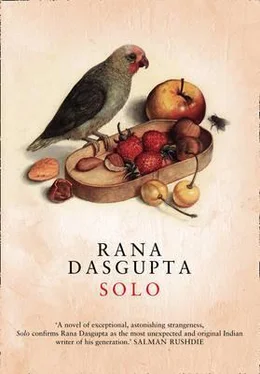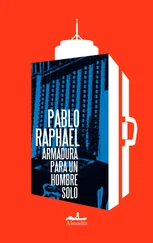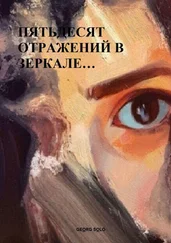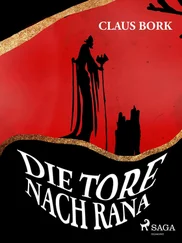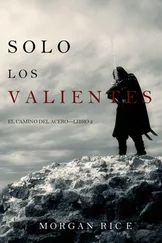Ulrich saw her weeping every day, and he wished he could reach out and help her. But he felt inhibited around her suffering, and he could not bring himself to ask how she felt. It was an irrationality that he recognised about his character, but could do nothing about. For all their life together, his mother’s troubles made him panic, and he kept his distance from them — as if they contained a poison to which he was peculiarly vulnerable.
It was around that time that Ulrich glimpsed an aged vagrant in the street, and realised it was Misha the fool. Misha was filthy and carried a sack. He marched up and down Tsar Osvobiditel Place, where the bureaucrats parked their limousines. When cars drew up there, he guided them in, flapping his arms and grimacing with his missing teeth. Then he wrote out parking tickets that he pressed upon the uniformed chauffeurs, who threw them away and took no notice.
Ulrich watched for some time, but he did not approach. It was the last time he ever saw Misha. During the communist years, they cleaned out people like him.
The Red Army marched into Sofia on 9 September 1944, and was met by frenzied crowds. Ulrich and his mother watched the tanks arrive, and they cheered with the rest of them, for now Hitler’s hold was released. Bulgaria changed sides in the war, and fought with its Soviet liberators against Germany.
During those last months of the war, Ulrich’s thoughts were set upon distant Berlin. He read of the thousand American bombers flying over the city every night, and the million Russian soldiers encircling the city with their tanks. He saw pictures of wilderness where once he had sat in cafés, and he knew that the Berlin he remembered had already ceased to exist.
Albert Einstein had left for Princeton even before Hitler came to power, and, during the Nazi years, Berlin was emptied by a full-blown exodus.
His old teachers had gone. Walther Nernst had resigned over the anti-Jewish policies which had emptied his department. Fritz Haber, an ardent German nationalist, who had been decorated by the Kaiser for his invention of chemical weapons and who wore Prussian military uniform on official occasions, was thrown out of the university because he was a Jew who had converted to Protestantism. He fled to Switzerland and died of chagrin.
Max Planck had visited Hitler personally to ask him to spare the scientific community from persecution. He remained in Berlin during the war to tend to its ruins. His house was destroyed in the Allied bombings, along with decades of his notes, and his son tortured to death by the Gestapo for his role in a failed plot to assassinate the Führer. When the war came to an end, the eighty-seven-year-old Planck was discovered living with his wife in the forest.
Ulrich lay awake thinking about Clara Blum, who was not mentioned in the newspapers. He did not know whether she had escaped. He wondered what the canals looked like now, where he and she used to walk.
14
THE RUSSIANS PARKED their tanks on the courts of Sofia’s tennis club, and there was no doubt which way things were heading. So many were executed from the previous regime that the judge took days to read out the list of names. In the name of the People: death . Others were taken away and shot without any such performance, including those of Elizaveta’s friends who had been most outspoken in their criticism of the communists. The fresh government was filled up with party activists from the villages and communist stalwarts fresh out of jail — and after what they had been through, they were in a vengeful mood.
The new society had already been formulated in Moscow, and it was unrolled here even as the war still raged. The Stefanovs’ leather company was confiscated, and the scientific bookshop where Ulrich used to stop each day was closed. The newspapers he had grown up with disappeared. His family home was divided in half, and a party man from the countryside was installed upstairs with his wife and six children.
One afternoon, Ulrich opened the door to a delegation that had come to confiscate the remaining relics of his family’s one-time prosperity: his mother’s jewellery, an ancient crucifix with a gold figure of Christ that hung on the wall, and the framed prints of the Ringstrasse in Vienna.
Elizaveta turned apoplectic with these indignities, and never lost an opportunity to rant about them. She abused the policemen in the street who presumed to interfere with her, and she complained about the Russian tanks. Most of all, she seethed about the family who had taken over half her house, whose party membership earned them many privileges she did not enjoy.
‘We don’t even have flour or oil, and they have everything. People without a grain of civilisation who leave spit every day in the stairwell. Your father bought this house with his last money, and look at us now, crouching here like vagrants!’
She shouted such diatribes at the ceiling, hoping they would hear, and she hissed when she saw them on the stairs. The man said to her,
‘You should be more restrained in your expression, comrade. Your opinions don’t matter any more. They may land you in trouble.’
The war ended with one dictatorship crushing another. The exultant newspapers showed the Soviet flag raised over the Reichstag in Berlin.
A few months later, when America dropped atomic bombs on Hiroshima and Nagasaki, the front pages were strangely mute, and Ulrich searched in vain for details of how it had happened. It seemed Einstein had started off the bomb with a letter to Roosevelt, and other scientists from Berlin had been involved in building it. But already the books from England and Germany had disappeared, and it was difficult to get reports from the West. He was left troubled and bewildered. What happened to those beautiful scientists when they got to America?
Now, in his blindness, his imagination of it has become more vivid. Two infernal flashes, immense shadows clutching for an instant at the earth, and survivors stumbling in the dust, their retinas burned.
The bombing of Sofia, just a year and a half old, already seemed quaint and remote. The bombs that dropped on Dondukov Boulevard were mechanical and comprehensible. You could imagine how they might look the moment they came through the ceiling. With these two bombs, everyone knew that humans had become entirely without substance, and henceforth there was only abject obedience.
Ulrich received a letter summoning him to the offices of the Council for Industry and Construction at 3.15 on a Thursday afternoon.
He was led through modern corridors, glimpsing men poring over tiny columns of numbers. Every closed door bore a name. He was brought to one inscribed I. Popov .
Popov sat at his desk looking at photographs. He glanced at Ulrich as he entered, not bothering with greetings. He placed one of the images in front of him.
‘Can you tell me what this is?’
Ulrich looked at the photograph.
‘It seems to be a factory,’ he said.
‘Continue.’
‘A chemical factory. This is a kiln, and there’s the reactor vessel. It would be used for making some kind of heavy metal salt.’
‘Good. Good,’ said Popov.
He turned his attention to the typewritten pages in front of him. He smoked curious yellow cigarettes, and left long gaps between his sentences.
‘You studied chemistry?’
‘Yes.’
‘University of Berlin?’
‘Yes.’
Popov looked at him quizzically, as if wanting more.
‘My teachers were Fritz Haber and Walther Nernst,’ Ulrich offered.
Popov nodded impatiently.
‘You’ve been supervising a leather factory for some years.’
‘No,’ replied Ulrich. ‘I was in the accounting department. I was not connected to the factory.’
Читать дальше
Конец ознакомительного отрывка
Купить книгу
